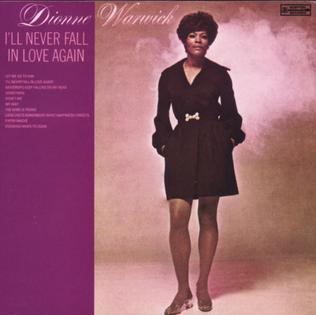Does anyone remember Dionne Warwick? This feels like a ridiculous question to ask about one of the 40 biggest hitmakers of the 20th century, but I think it needs to be asked before we start. Nowadays, most discussions I can find online of Warwick are not about her music, but about her wonderful Twitter presence or appearance on The Masked Singer. I’ve never heard her music on oldies stations, seen it on a friends Spotify playlist, or seen the glowing retrospectives that surround her contemporaries. She was initially billed in a league with Aretha Franklin (a name that, for reasons that will become apparent, is going to come up a lot in this article), but comparing her fame with the queen herself seems absurd, as most people I’ve checked in with for this article have no idea who Warwick is. I think that’s a shame, as everyone’s life would be a little better with her music, so I’d like to introduce you: everyone, say hi to Dionne.
Warwick’s story is a typical major label career track from the 50s and 60s. She was discovered as a backup and group vocalist, noticed for her considerable talent, signed to a standard one-sided contract that would leave her bankrupt, and started pumping out hits at breakneck speed. Her style is more, let’s say, traditional, than the Motown and funk that fills our memories of late 60s R&B. Her instrumentals are urbane, orchestral, and of a time before the upheavals of her day. I could easily imagine my 99-year-old great-grandmother turning up to Dionne Warwick in the 30s. This was the type of music that actually dominated the charts in the 60s and 70s, as opposed to the hippie anthems and provocative funk and soul we remember. This rather uncontroversial sound is a big reason that Dionne Warwick has not been beaten into our heads like most boomer music of her day.
But that’s only one reason for our generation’s ignorance of this classic artist. The more obvious reason is her voice. She’s an incredible singer, but not in the way that takes up a lot of oxygen. Discussions of what it means to be a “good singer” bias towards belting into the stratosphere or singing pitches that would shatter glass. Warwick is hardly going to compete with memorable performances of that type like “Respect” or “Gimmie Shelter,” but her voice casts a mystical spell in a more subtle way. To demonstrate this, I’d like to show you a song you might remember from another artist “Say a Little Prayer for You.”
I’ve heard the Aretha Franklin version of this song a million times, but I would never rate it as one of my favorites. I didn’t realize or understand why that version didn’t work for me until I heard Dionne Warwick’s original recording. Some songs call for belting, but some call for agility and clever enunciations. Warwick’s skill is in how she pronounces words, her control over which syllables pop and which slur into the next note. Even when she pushes into a higher and louder voice she always sounds completely in control, never as much as breaking a sweat. This allows her to find new melodies and counter melodies in every line, making each realization of the chorus shine in a slightly different way.
If you have a little bit of patience and a nostalgia for traditional pop stylings, then give Warwick a chance. You won’t be disappointed. Also, if you have a strong tolerance for contemporary Jesus Hip-hop, check out her latest single I guess because it’s a trip.

